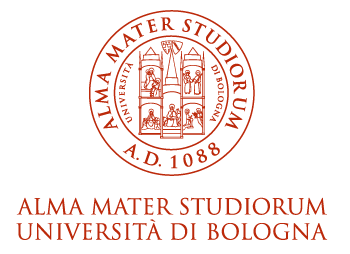The Course of Studies in Veterinary Medicine provides for Core Clinical Training (CCT) credits aimed at equipping the student with the practical skills and abilities, summarised in the Day-one competencies of the EAEVE, necessary for carrying out the role of the veterinarian in the context of Inspection, Control and Certification of Food of Animal Origin.
The CCT provides 3 credits.
The CCT involves 6 days of visits to external food production facilities (cattle, sheep, pig and poultry slaughterhouses or farmed game, and a food processing plant) located in the AUSL of Bologna, Ferrara, Modena and Romagna, and 3 days at DIMEVET of which 1 day of exercises and tests on the virtual slaughterhouse simulator and 2 days of discussion of case studies in the classroom.
Each day provides 6 hours of teaching.
For the abattoir visits, groups of 1 or 2 students are expected according to the availability of the host structure. For the activities at the food processing plant, a single group of 8 students is expected.
The total number of absences allowed for completing and pass the CCT is 20% of the hours.
The CCT programme includes the following activities:
|
N |
Topic |
Hours |
Module |
|
1 |
Abattoir visit (Red or White meat) |
6 |
External Visit |
|
2 |
Abattoir visit (Red or White meat) |
6 |
External Visit |
|
3 |
Abattoir visit (Red or White meat) |
6 |
External Visit |
|
4 |
Abattoir visit (Red or White meat) |
6 |
External Visit |
|
5 |
Abattoir visit (Red or White meat) |
6 |
External Visit |
|
6 |
Visit to a food processing plant |
6 |
External Visit |
|
7 |
Discussion of case studies related to hygienic production of fresh and processed meat (problem-solving). |
2 |
1 |
|
8 |
Virtual Slaughterhouse Simulator (Audit). |
6 |
2 |
|
9 |
Discussion of case studies related to OV duties at the abattoir (problem-solving). |
2 |
2 |
|
10 |
Discussion of case studies related to the identification and control of chemical hazards in food of animal origin (problem-solving). |
4 |
3 |
|
11 |
Discussion of case studies related to the identification and control of microbiological hazards in ABP (problem-solving). |
4 |
4 |
Modules: Andrea Serraino (Module 1); Alessandro Seguino (Module 2); Giampiero Pagliuca (Module 3); Alessandra De Cesare (Module 4).
The students are required to:
The delivery and collection of the training project, duly completed and signed, will take place through the use of the transparent box positioned outside the SEFA studios or by sending a signed PDF copy to Prof Seguino;
The student must:
Always bring:
- PPE,
- Safety boots,
- Clean coat,
- masks,
- Statement of confidentiality,
- Training project;
- Certificate of attendance to the course: "Security Legislative Decree 81/08" (attended at UNIBO);
Have the CCT booklet and the training project signed by the person in charge of the facility at each visit day;
Being able to reach the place where the CCT activities are to be carried out by one's own means of transport (i.e. must be able to reach the indicated locations independently);
Follow the instructions of the tutors and refer to them for any organizational, health and safety, or other necessities;
Respect the confidentiality obligations regarding the production processes, products or other information of a confidential nature relating to the establishment of which it becomes aware, both during and after the CCT.
For the purposes of recording, the student must send to Prof Seguino a scan of the:
Registration for the CCT takes place via the “Studenti Online application”, by selecting the Curricular Internship icon.
The application allows you to choose the month during which you wish to carry out the CCT.
Before the start of the CCT, the student will receive an email containing the calendar of the groups and an indication of the group to which he/she has been assigned.
The calendar indicates, for each group, the training days with an indication of the structures, addresses and contact persons.
CCT Coordinators
Prof. Andrea Serraino
Phone: +39 051 2097323
Mail: andrea.serraino@unibo.it
Prof. Alessandro Seguino
Phone: +39 051 2097320
Mail: alessandro.seguino@unibo.it
[ .pdf 219Kb ]
How can we help you: Activate and manage a curricular internship or one for the preparation for the final dissertation, in Italy and abroad, outside of international mobility programmes.
Contact person's name for the office Alice Comini
E-mail tirocinio.vet@unibo.it
Phone +39 051 2097983 Orario telefonico
Address Via Tolara di Sopra 50 - 40064 Ozzano dell' Emilia BO Orario apertura al pubblico
Other information Schedule via email or by telephone an in-person reception.
